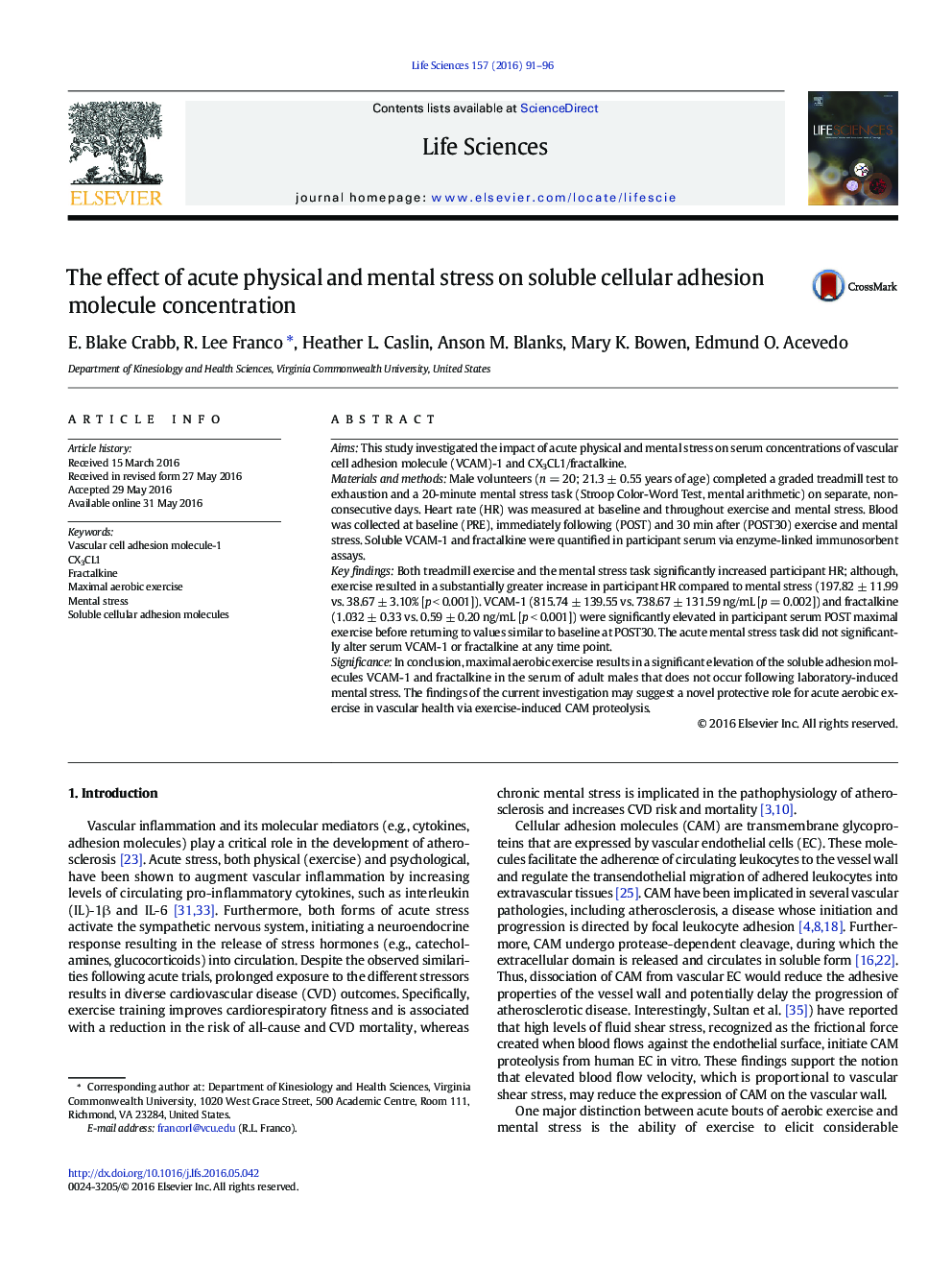| Article ID | Journal | Published Year | Pages | File Type |
|---|---|---|---|---|
| 2550425 | Life Sciences | 2016 | 6 Pages |
AimsThis study investigated the impact of acute physical and mental stress on serum concentrations of vascular cell adhesion molecule (VCAM)-1 and CX3CL1/fractalkine.Materials and methodsMale volunteers (n = 20; 21.3 ± 0.55 years of age) completed a graded treadmill test to exhaustion and a 20-minute mental stress task (Stroop Color-Word Test, mental arithmetic) on separate, non-consecutive days. Heart rate (HR) was measured at baseline and throughout exercise and mental stress. Blood was collected at baseline (PRE), immediately following (POST) and 30 min after (POST30) exercise and mental stress. Soluble VCAM-1 and fractalkine were quantified in participant serum via enzyme-linked immunosorbent assays.Key findingsBoth treadmill exercise and the mental stress task significantly increased participant HR; although, exercise resulted in a substantially greater increase in participant HR compared to mental stress (197.82 ± 11.99 vs. 38.67 ± 3.10% [p < 0.001]). VCAM-1 (815.74 ± 139.55 vs. 738.67 ± 131.59 ng/mL [p = 0.002]) and fractalkine (1.032 ± 0.33 vs. 0.59 ± 0.20 ng/mL [p < 0.001]) were significantly elevated in participant serum POST maximal exercise before returning to values similar to baseline at POST30. The acute mental stress task did not significantly alter serum VCAM-1 or fractalkine at any time point.SignificanceIn conclusion, maximal aerobic exercise results in a significant elevation of the soluble adhesion molecules VCAM-1 and fractalkine in the serum of adult males that does not occur following laboratory-induced mental stress. The findings of the current investigation may suggest a novel protective role for acute aerobic exercise in vascular health via exercise-induced CAM proteolysis.
